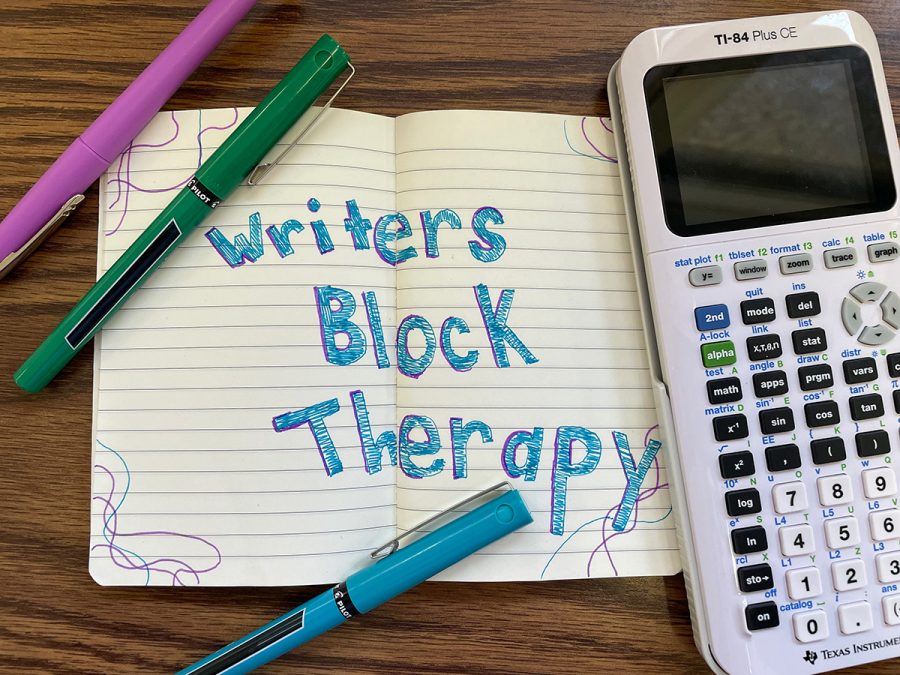Every college student should be journaling
The scientific solution to the writer’s block epidemic
Photo by Claire Schoenemann
It wasn’t until my freshman year of college that I realized the power a journal truly has.
It’s 2:41 a.m. I wake up to the humbling creak of my freshman dorm futon when I realize that I did it again.
I fell asleep before pressing submit on my 11:59 p.m. discussion assignment. I still have an entire guest speaker summary to write before sunrise, too.
Part of me wants to roll over and close my eyes, but I know that if I do I will be waking up on the futon with the birds.
There was a time in my life when writing synopses and discussion posts were some of my favorite assignments. Now, I can’t seem to find the motivation to even send my work through Grammarly.
My scientific solution for my writer’s block epidemic? Journaling.
Ever since the seventh grade, I’ve considered myself an avid journaler.
It wasn’t until my freshman year of college that I realized the power a journal truly has.
A journal can be held in the flesh in many forms, some may call it their notes app, while others may keep a decorated pink locket journal under their bed.
Whatever form your journal takes, keep writing in it. If you don’t have a journal, I suggest you start there.
It’s no secret that burnout is common among college kids, specifically in their sophomore year. It’s not nicknamed the ‘sophomore slump’ for nothing.
My personal remedy for the epidemic hitting my peers and I is the rejuvenation of journaling.
After a long day of drafting discussion posts, term papers and synopses, the thought of laying in bed and writing more for fun may sound simply repulsive to you.
The truth is, it makes the world stop spinning.
According to the Greater Good Magazine, hundreds of scientific studies have been conducted that prove what has been hypothesized for so long: Journaling helps to ease distress because the act of putting pen to paper relieves us of pent-up emotions and thoughts.
Journaling, as opposed to confiding in a friend, family member or therapist, provides our brains with the opportunity to express thoughts and emotions consciously, but without censorship of what and what not to say.
I am by no means advising you to stop going to therapy or talking to your loved ones, but journaling provides an emotional outlet that all of us can use, but not many take advantage of.
Particularly for college students, it can be difficult to find time to truly reflect on the massive life transition that we are all enduring. In my experience, there is a constant pipeline straight from academics to a social life.
In between, it is important to breathe. Away from any roommates, term papers and discussion posts, to truly soak up the experience that is college.
One of the most influential genres of journaling includes expressive writing. While I am no creative writing major, expressive writing can be as simple as a casual thought-dump.
Regardless of what the final product ends up like, expressive writing provides an outlet for condensed and sheltered emotions or stressors.
Writing about these things for just 20 minutes a day creates a connection between an emotion and a resulting thought. This improves problem-solving skills and critical thinking.
In addition to these psychological benefits, journaling is also just an excellent hobby to pick up and make an effort to enjoy writing amidst a world full of assignments.
The next time you feel like you can’t possibly write one more word about volcaniclastic sediments or governmental structure, pick up your pen and write about yourself for once.
Schoenemann can be reached at [email protected].

Claire Schoenemann is a third-year geology and integrated strategic communication student and this is her fifth semester on The Spectator staff, but her first as the OP/ED Editor. When she's not reading or writing, she enjoys hiking and looking at rocks.

